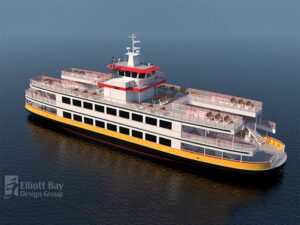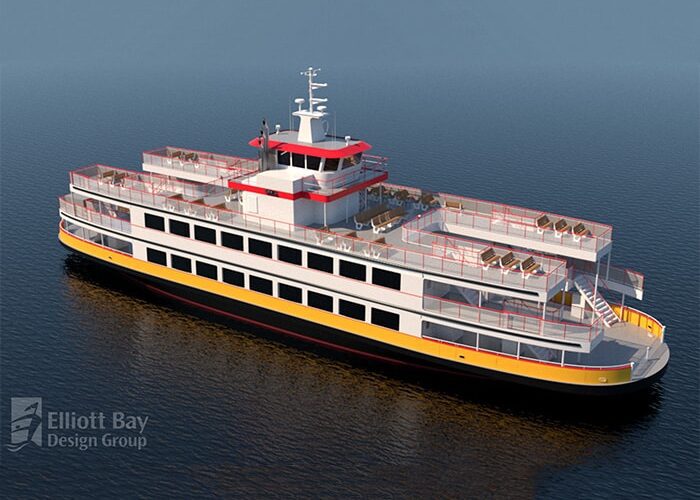
Seattle-based Elliott Bay Design Group (EBDG) on July 6 announced that its design of a hybrid-electric passenger vehicle ferry for Casco Bay Lines of Portland, Maine will enter the construction phase at Senesco Marine of North Kingstown, Rhode Island.
The 164-foot ferry is expected to replace an existing diesel-powered ferry, the Machigonne II, resulting in a reduction of 800 tons of carbon dioxide each year, helping to improve air quality.
EBDG has supported Casco Bay Lines since 2018 as it prepared and planned for the replacement ferry, which is to operate between Portland and Peaks Island, Maine. The contract design, according to EBDG, meets operational requirements, increased passenger demand and Casco Bay Lines’ goal of reducing its carbon footprint.
As part of the preliminary design efforts, EBDG prepared a propulsion selection study to compare various propulsion systems based on capital cost, operating cost, reliability, serviceability, CO2 emissions and in-port noise and exhaust generation.
The resulting ferry, according to EBDG, features ABB Marine & Ports’ hybrid propulsion system supporting diesel-electric and zero-emissions battery-powered modes, as well as a combination of both.
“With the ferry operating in zero emission mode, passengers can benefit from a smoother, quieter and cleaner ride,” according to EBDG.
The hybrid-electric ferry has capacity for 15 vehicles and 599 passengers, spread across three decks, including a sun deck with unobstructed views. The double-ended configuration eliminates the need to turn the vessel around and thus reduces the required speed and energy consumption for the new vessel even though it is larger than the Machigonne II.
EBDG will provide technical support services to Casco Bay Lines as the ferry progresses through construction.
The ferry is expected to enter operating service in 2024.

